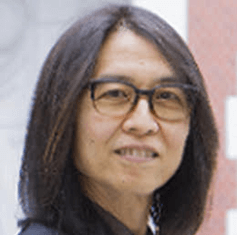Welcome to the latest edition of our Open Science Round-up, curated by Moumita Koley. Join us as she brings you the key reads and news in the world of Open Science.
In this issue, we feature an editorial by Mitsuhiro Okada, Professor Emeritus at Keio University, who shares his insights on the progress of the Open Access (OA) movement in Japan.
A Glimpse into the Open Access Movement in Japan
Following the 2023 Sendai G7 Summit of the Science-Technology Ministers, the Japanese Government is committed to Open Access (OA) by 2025*. However, on the Japanese public academic journal platform J-Stage, run by the Japan Science and Technology Agency (JST) and financially supported by the Japanese Government, only 6% of the approximately 3,700 registered journals (and 10% of the roughly 2,000 active ones) are open access.
So, how can the Japanese government achieve OA by 2025 – 2026?
One of the characteristics of academic journal publications in Japan is that most are edited by an academic association or society, where the members pay an annual fee to receive rapid access to articles. J-Stage is designed to facilitate each association to convert their registered journals to immediate OA. In fact, a significant majority already allow free downloads for fair use in research and education, although some associations set embargoes.
The governmental declaration of OA by 2025 provides a good occasion for academic associations to discuss transitioning from the traditional association model to a new model with immediate OA. Typically, Japanese academic associations own the copyrights of their journal articles. This is not necessarily a major hurdle; if the association decides on OA, they could apply CC licenses to all articles published in the last 50 years at once.
For the 2025 OA realization in Japan, a top-down solution could be implemented where the government orders each university or institute to set up an Immediate OA Repository (Green OA). Each university or institute would then require researchers to submit their final versions for independent publication, regardless of the corresponding journal publication. This approach raises various issues, such as conflicts with the spirit of Japanese copyright law, ambiguity in defining the “final version” of an accepted paper, and the potential weakening of Japanese academic associations. These issues need further discussion.
Various sectors involved have been making efforts towards the OA goal in Japan for some time now. These include a series of Japan Open Access Summits, the fifth of which was recently held. Thanks to these ongoing collaborative efforts, I am confident that we will soon reach the OA goal in Japan.
I would like to point out some issues on OA in the Humanities. In my opinion, determining if a modified work exceeds the range of “derivatives” in the CC-license sense is more delicate in the humanities than in typical scientific fields. While removing a violated work from an online page is easy, it is not as straightforward as traditional paper media used in some humanities fields. There are a few more issues in the Humanities and the related. Some of them are more specific in Japan. I plan to discuss those elsewhere.
*For the referred papers and their evidence data produced from any public research grants awarded by the grant application calls announced in 2025 and after.
Acknowledgments: The author would like to thank Prof. Miho Fujimori (NII) for the discussion during the preparation of this report.
About the author:
Mitsuhiro Okada is a Professor Emeritus at Keio University. He serves as the 2nd Vice-President of International Union of History and Philosophy of Science and Technology/ Division of Logic, Methodology and Philosophy of Science and Technology (IUHPST/DLMPST) and is the DLMPST contact for the ISC-Regional Focal Point of Asia-Pacific. Additionally, he is the Director of International Exchanges for the Japan Association for Philosophy of Science.
Big stories in Open Science
Journal of Open Hardware Transitions to Diamond Open Access
- The Journal of Open Hardware has transitioned to a diamond open-access model hosted by the University of Western Ontario, ensuring all articles are freely available without publication fees. This change, supported by the community’s patience, aims to make the publishing process more accessible and transparent. The journal is now accepting article submissions and reviewers under this new model, continuing its mission to advance open hardware scholarship.
Cambridge Launches Diamond Open Access Journals Platform
- Cambridge University has launched the Diamond Open Access Journals platform, a one-year pilot project to support the university’s research community in open research and scholarly publishing. This initiative is promoted by the Open Research Systems and Office of Scholarly Communication teams within Cambridge University Library (CUL) and utilizes the DSpace repository platform to host open-access, peer-reviewed journals without publication fees. Four student-led journals, including the Cambridge Journal of Climate Research, are participating in the pilot, with plans to expand participation and assess long-term sustainability.
PKP Supports Barcelona Declaration on Open Research Information
- The Public Knowledge Project (PKP) has endorsed the Barcelona Declaration on Open Research Information, an initiative launched in April 2024 to promote open, collaborative research and equitable knowledge sharing. The declaration aligns with FAIR guidelines, emphasizing openness, collaboration, and sustainable infrastructure to transition from closed to open research information. PKP, known for its Free Open Source Software tools used by over 44,000 journals globally, joins 28 other organizations in supporting this initiative to enhance the accessibility and usability of research data.
50-Year-Old Thesis Plagiarized: Two Papers Retracted
- A math professor in Poland had two papers retracted after it was discovered that she plagiarized a 1968 doctoral thesis by another Polish topologist. The papers, published in 2016 and 2017 in the journal Topology and its Applications, published by Elsevier, were found to closely resemble the unpublished dissertation.
Estonia to Introduce Comprehensive Research, Development, and Innovation Legislation
- Estonia is set to introduce a new act on research, development, and innovation, updating legislation from 1997 that is deemed inefficient for current needs. The key goals include creating stronger links between R&D and innovation, better ministry coordination, a new funding system for institutions, and ethics regulation in law for the first time. The government expects the legislation, currently under stakeholder consultation, to be adopted by the end of the year and implemented at the beginning of 2025.
ASM Adopts Subscribe to Open Model for 2025
- The American Society for Microbiology (ASM) will implement a Subscribe to Open (S2O) model for its six primary research journals in 2025. This move supports ASM’s mission to disseminate high-impact research globally and accelerate scientific progress. The S2O model will convert ASM’s subscription journals to open access, allowing authors at subscribing institutions to publish without article processing charges (APCs), thereby making publishing more equitable and inclusive. Additionally, ASM’s S2O model will reduce the administrative burden by leveraging existing library subscription processes, eliminating the need for individual negotiations.
UNE Receives $80,000 Grant to Enhance Access to No-Cost Educational Resources
- The University of New England (UNE) has received an $80,000 grant from the Davis Educational Foundation to support the adoption of open educational resources (OER) over the next three years. This initiative aims to reduce financial burdens for students and increase accessibility to educational materials. According to the dean of UNE Library Services, this funding will create mini-grant opportunities for faculty to adopt OER resources, enhancing student success and engagement. By joining the Open Education Network in 2023, UNE is working towards creating a more equitable learning environment where all students have access to the necessary materials from day one.
Open Science NL Launches €12.5 Million Funding Program for Digital Infrastructure
- Open Science NL has announced a €12.5 million funding program, its largest to date, aimed at improving or developing open science infrastructures. The program encourages collaborative efforts to enhance existing solutions, fostering connectivity and sustainability in open science infrastructure. Interested parties can submit applications for small projects up to €250,000 or larger projects ranging from €250,000 to €1,500,000, with project durations of up to two and four years, respectively.
Clarivate Releases 2024 Journal Citation Reports with Unified Rankings
- Clarivate has released the 2024 update to the Journal Citation Reports™ (JCR™), providing comprehensive rankings of high-quality journals for academic institutions, researchers, and publishers. This year’s JCR includes unified rankings across subject categories, integrating the Emerging Sources Citation Index (ESCI) for a more streamlined and inclusive evaluation. The reports cover over 21,800 journals, including nearly 5,800 open-access journals, and introduce the Journal Impact Factor™ (JIF™) to 544 journals for the first time. These enhancements ensure that all trustworthy journals are valued regardless of citation frequency.
Swiss National Open Access Strategy Updated to Ensure Free Access to All Publicly Funded Research by 2032
- The updated Swiss National Open Access Strategy aims to make all publicly funded scholarly publications freely available with machine-readable access and without any embargo. This open dissemination of research findings is expected to benefit society and academia significantly and is expected to be completed by 2032. The strategy builds on the 2017 initiative, driving towards complete open access by 2032, with Swiss universities and the Swiss National Science Foundation (SNSF) taking the efforts forward. The updated strategy emphasizes infrastructure development, especially for diamond and green open access in particular), legal frameworks, publisher negotiations, and fostering an open access culture.
Open Science events and opportunities
- The Bill & Melinda Gates Foundation’s open access policy requires all Gates-funded research to be published as a preprint from January 2025. F1000 has partnered with the Foundation to launch VeriXiv in August 2024 to support grantees in complying with the revised policy. To learn more, join this webinar on 22 July 2024 titled “Demystifying Preprints: The Benefits of Early Sharing in Research” at 10:00 am EDT / 3:00 pm BST.
- Nomination for the Sarah Jones Award by the Research Data Alliance (RDA) Council for exceptional contribution to fostering collaboration in Open Science is now open. The deadline for receipt of nominations is 12 September 2024.
- AIMOS 2024: The sixth annual conference of the Association for Interdisciplinary Meta-research & Open Science (AIMOS) will be held from 19 to 21 November 2024 in Canberra/Kanbarra. Submissions for the conference will likely open in August 2024.
- The 3rd edition of Open Science in the South conference, will be held in Cape Town from 9 to 11 December 2024. The call for abstract is now open and the form can be accessed here.
Job Opportunities
- EPFL, the Swiss Federal Institute of Technology in Lausanne, is inviting applications to fill in the post of Open Science Officer. Apply here.
- The Open Preservation Foundation is seeking an experienced, motivated Executive Director. Application Deadline is 8 July 2024.
- The Public Knowledge Project (PKP) is seeking a Project Manager to provide oversight for a variety of current and emerging projects. Apply with a resume and cover letter, no later than 4:00 p.m., Pacific Time on 11 July 2024.
- Astera seeks creative, high-agency entrepreneurs for its Open Science Fellow program to foster interactive information exchange in the life sciences. This one-year, full-time fellowship offers a salary of $125K – $200K and up to $350,000 in resources to develop new scientific publishing tools, aiming to create a spin-out organization or company. Application deadline is 25 July 2024.
Our top ten Open Science reads
Disclaimer
The information, opinions and recommendations presented by our guests are those of the individual contributors, and do not necessarily reflect the values and beliefs of the International Science Council.
Image by Daniel Clay on Unsplash

